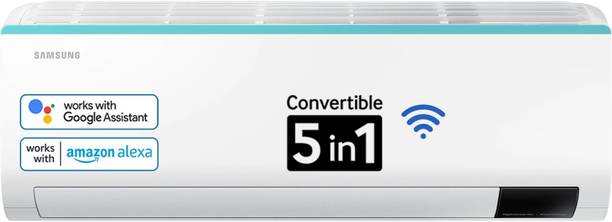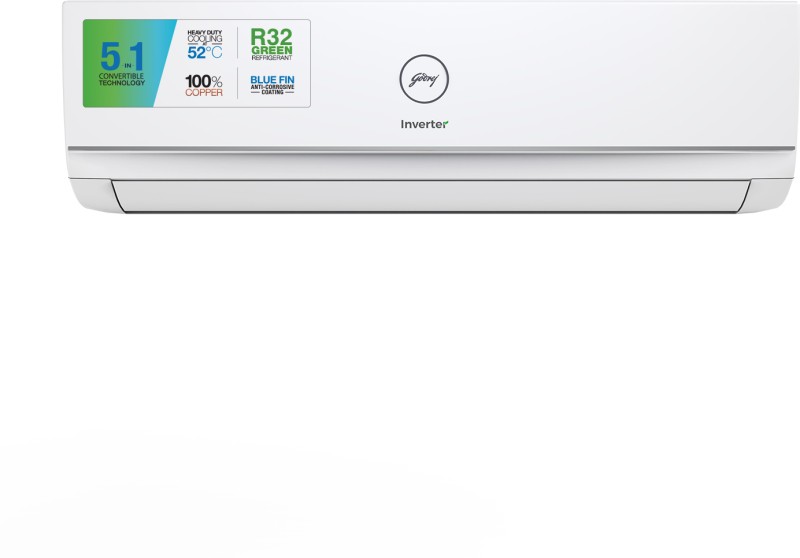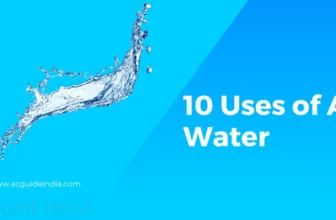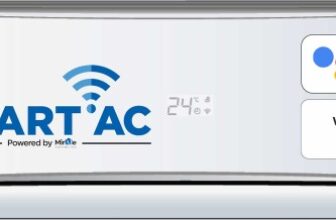When it comes to staying cool and comfortable during those scorching summer months, air conditioning is an absolute lifesaver. However, with the ever-evolving world of technology, it’s not just about blasting chilly air into your space anymore. The market now offers two major types of air conditioners: the trusty non-inverter ACs that have been with us for years, and the increasingly popular inverter ACs that promise improved energy efficiency and greater comfort.
So, what’s the difference between these two cooling champions? Which one should you choose to beat the heat? Join us as we delve into the world of air conditioners and demystify the key distinctions between inverter and non-inverter ACs. We’ll break down the technical jargon and provide you with a friendly guide to help you make an informed decision when it’s time to invest in a cooling companion.
Key Difference Between Inverter and Non-Inverter AC
- Compressor Operation:
- Inverter AC: Inverter ACs utilize a variable speed compressor that adjusts its power based on the cooling demands of the room. It can operate at different speeds, providing precise and consistent cooling.
- Non-Inverter AC: Non-inverter ACs have an on-off compressor that runs at full capacity when cooling is required and switches off when the desired temperature is reached. It operates in a binary on-off fashion.
- Cooling Efficiency:
- Inverter AC: Inverter ACs maintain a more consistent and precise temperature as they continuously adjust their cooling capacity. They can quickly adapt to the cooling needs of the room, resulting in improved efficiency.
- Non-Inverter AC: Non-inverter ACs may experience temperature fluctuations since the compressor cycles on and off to maintain the desired temperature. This can lead to slight variations in cooling efficiency.
- Energy Efficiency:
- Inverter AC: Inverter ACs are known for their high energy efficiency. By adjusting the compressor speed based on cooling requirements, they consume only the necessary amount of energy, resulting in reduced energy wastage.
- Non-Inverter AC: Non-inverter ACs consume more energy during the startup phase since the compressor switches on and off frequently. This on-off cycle consumes additional electricity, making them comparatively less energy-efficient.
- Energy Consumption:
- Inverter AC: Inverter ACs adjust their cooling output according to the room’s needs, leading to reduced energy consumption. They consume less energy during startup, as the compressor doesn’t have to work at maximum capacity every time.
- Non-Inverter AC: Non-inverter ACs consume more energy during startup as the compressor needs to reach its full capacity quickly to cool the room. The frequent on-off cycling also results in higher overall energy consumption.
- Noise Levels:
- Inverter AC: Inverter ACs tend to operate more quietly compared to non-inverter ACs. The variable speed compressor in inverter ACs produces less noise as it doesn’t need to start and stop abruptly.
- Non-Inverter AC: Non-inverter ACs can be noisier due to the on-off operation of the compressor. The sudden start and stop of the compressor can generate more noise during the cooling cycle.
- Initial Cost:
- Inverter AC: Inverter ACs generally have a higher initial cost compared to non-inverter ACs. The advanced technology and energy-saving features contribute to the higher price tag.
- Non-Inverter AC: Non-inverter ACs are typically more affordable upfront since they employ a simpler technology and have been on the market for a longer time.
- Long-term Savings:
- Inverter AC: Although inverter ACs have a higher initial cost, they offer long-term savings in terms of reduced energy bills. Their energy-efficient operation can result in significant savings over time.
- Non-Inverter AC: Non-inverter ACs may have a lower upfront cost, but their higher energy consumption can lead to higher electricity bills in the long run.
- Cooling Performance:
- Inverter AC: Inverter ACs provide optimal and consistent cooling performance throughout the operation. They can maintain a stable temperature without significant fluctuations.
- Non-Inverter AC: Non-inverter ACs may experience temperature fluctuations as the compressor cycles on and off. This can lead to slight variations in cooling performance.
- Temperature Control:
- Inverter AC: Inverter ACs offer more precise temperature control. The variable speed compressor adjusts the cooling capacity to match the cooling requirements, resulting in a more accurate temperature control.
- Non-Inverter AC: Non-inverter ACs may experience temperature variations as the compressor switches on and off. This can cause slight deviations from the desired temperature.
- Suitability:
- Inverter AC: Inverter ACs are ideal for frequent use and larger spaces where consistent cooling and energy efficiency are important factors.
- Non-Inverter AC: Non-inverter ACs are suitable for smaller spaces or occasional use, where basic cooling needs are met without the need for advanced features or energy efficiency.
Inverter AC Vs Non-Inverter AC: Which is Better?
Inverter ACs have a special feature that allows them to adjust the compressor’s speed based on the cooling needs of the room. This means the compressor runs at different speeds, providing just the right amount of cooling required to maintain a comfortable temperature.
On the other hand, non-inverter ACs have a compressor that operates in an on-off manner. It runs at full capacity when cooling is needed and completely shuts off when the desired temperature is reached. This on-off cycle consumes more energy during startup.
Because inverter ACs can adjust their cooling capacity as needed, they consume less energy overall. They don’t have to constantly turn on and off like non-inverter ACs, which helps save energy and reduces electricity bills.
So, if you want to save energy and reduce your electricity costs in the long run, an inverter AC is the better choice. It offers more precise and efficient cooling, adjusting its power to match your cooling needs while consuming less electricity.
Inverter AC vs Non-Inverter AC
| Features | Inverter AC | Non-Inverter AC |
|---|---|---|
| Compressor Operation | Variable speed compressor | On-off compressor |
| Cooling Efficiency | Precise and consistent | Temperature fluctuations |
| Energy Efficiency | High | Relatively lower |
| Energy Consumption | Adjusts based on demand | Consumes more at startup |
| Noise Levels | Quieter operation | Can be noisier |
| Initial Cost | Higher | Lower |
| Long-term Savings | Energy-efficient, reduced bills | Higher energy consumption, higher bills |
| Cooling Performance | Optimal throughout | Cycles on and off |
| Temperature Control | More precise | May experience fluctuations |
| Suitability | Ideal for frequent use and larger spaces | Suitable for smaller spaces and occasional use |












